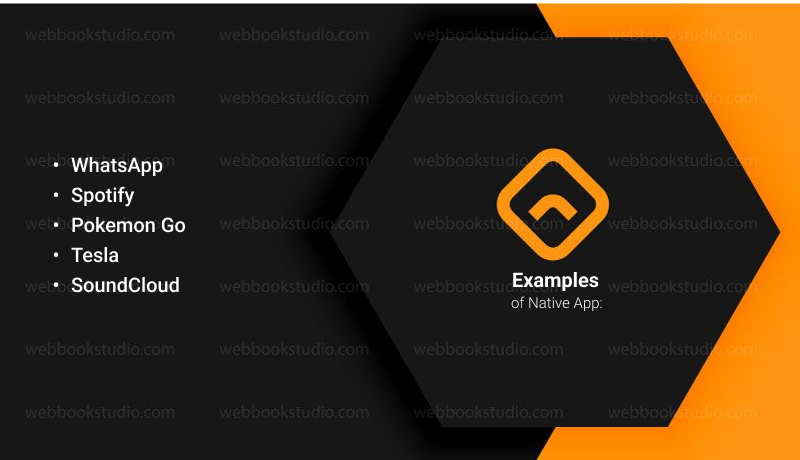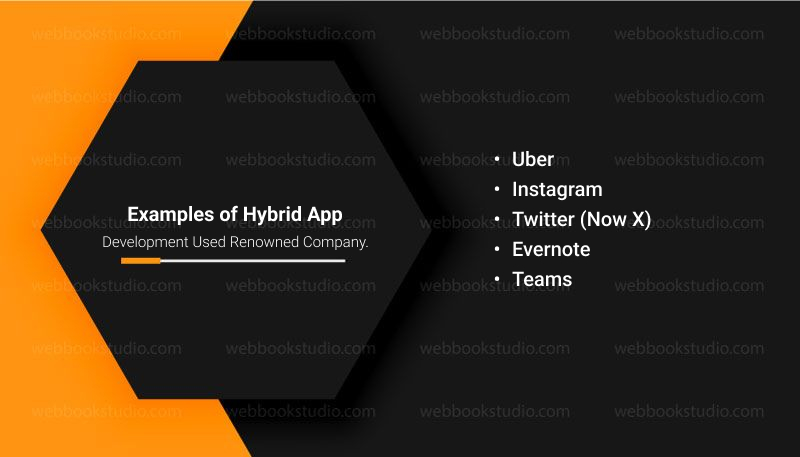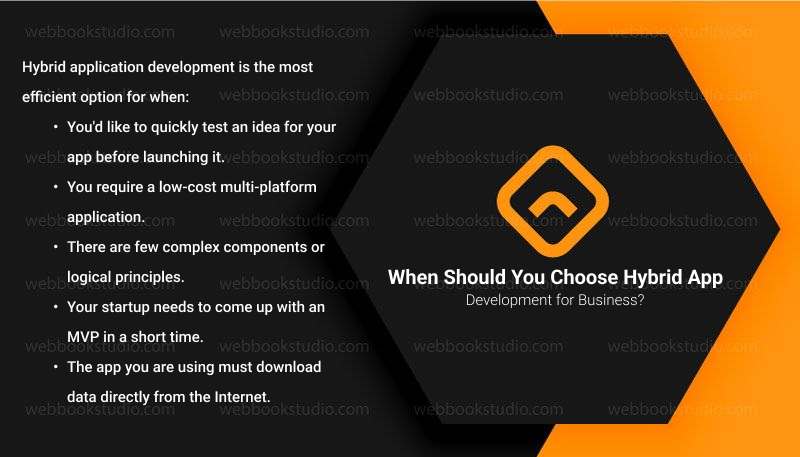The Better Choice for Your Mobile Application with Hybrid App Development.
Hybrid App Development Mobile applications are powerful business tools. They are today the preferred method of connecting to customers with their day-to-day requirements, such as grocery shopping, banking entertainment, and entertainment. Mobile applications offer an easy and quick experience that customers want. With the constant advancement of technology, it is unquestionable that businesses are now dependent heavily on mobile apps than before. The mobile application development market is growing, and the amount of downloads for mobile apps will reach a staggering 2.99 trillion. But however appealing the concept of creating a mobile application for your business may seem. However, it’s an important business issue and has its issues. Like, for instance, there is the native and multi-platform debate.
What are Native Apps?
Native app development involves creating apps using a specific programming language for a mobile OS, such as:
The app is built within a secure and safe ecosystem that adheres to the specific OS’s latest technical know-how and user-experience guidelines. It provides more speed and improved experience for users. It’s an identical appearance and experience to other native apps that run on this device. In turn, the user will practice using the app and navigate more quickly. Additionally, native applications provide some advantages. It’s simple to gain access to and use the capabilities of your device, like address book, GPS, camera, and more. Native apps are built into the OS. Therefore, they are developed according to specific requirements.

Examples of Native App:
Advantages and Disadvantages of Native Apps.
It’s time to evaluate the advantages of native mobile apps versus their disadvantages to understand what you’ll have to contend with should you opt for Native app creation.
Advantages of Native Apps:
- Because a native app is, in essence, an improved version of the default operating system application, they typically are recognizable in appearance and feel. That can help enhance the user experience.
- Specifically designed to work on this platform, native apps usually run faster. By keeping their aspect ratios, native apps enhance the images and graphics.
- Generals perform better when disconnected from the Internet, which is why you can utilize them without the Internet (most of the time). The essential features of your app are still accessible to users even if they’re stuck in the middle of nowhere, such as on a plane or the subway.
- The native code remains more efficient than JavaScript and HTML, so its performance in native applications is excellent for graphic-intensive apps such as games with high-definition resolution and applications with much animation.
Disadvantages of Native Apps:
- Native mobile applications typically require a longer time to download. Users need to go into the store for apps, search for an app, open it, agree to the conditions and terms, and then download it. If the process takes time, prospective customers could continue the download midway through.
- The cost of developing apps that native app developers incur eventually rises because native app developers with different skills are required to develop, maintain, and manage the same app on different platforms.
- Launching the same feature across every platform takes work and effort. The reason is that native mobile applications come with a unique codebase.
Recommended article; Building a web application: Key considerations for effective website development.
What is Hybrid App Development?
Hybrid apps are developed based on websites. At the same time, they look like the typical native app, but the source code is a business’s website. The applications are web-based, created by using JavaScript as well as HTML. After coding, it is then wrapped in the native application by using multi-platform platforms such as React Native. While hybrid apps are created using web-based technologies, they behave as native apps and offer the same user experience. They are wrapped within an app container that is native to the.
When users browse through the app, it downloads all the data on the page. However, unlike a traditional web-based application, hybrid mobile apps utilize native plugins to provide native app-like functions without additional programming. With a single development, your application will be able to utilize native features of the device, such as the camera, as well as file storage and security features, such as facial recognition and fingerprint detection.
Advantages and Disadvantages of Hybrid App Development for Individual Projects.
Like native application development, hybrid apps have strengths and weaknesses. Let’s take a take a look:
Advantages of Hybrid Apps:
- When creating multiple versions of applications, these Hybrid App Development offers a “one for all” build, which can help save time and money.
- It doesn’t matter whether the user is switching between devices, browsers, or operating systems; hybrid app development can provide a comparable and consistent user experience for all operating systems (for greater or less).
- There’s a single code base on all systems, meaning hybrid app developers only have to write the code once and run it when required. Each platform comes with its native apps which need to be designed, upgraded, and programmed individually.
- Hybrid applications can attain the same hardware-based performance acceleration that native apps do. It’s not a massive advantage because native apps can perform the same task; however, being aware of it is vital.
Disadvantages of Hybrid App Development:
- The performance of many applications is the same regardless of whether they’re native or hybrid. Games that are HD, 3D apps that utilize high-quality graphics and data-intensive features, and other apps that require performance cannot function consistently or effectively in hybrid apps.
- Because of their hybrid nature, mobile applications, each user’s experience on the app will be distinct. The operating system and software they’re using and its version will decide the experience. There must be more rigorous testing.
- Native plugins are essential to run hybrid apps. Entirely new features for a device could not always be accessible as a native plugin. A skilled developer could create their plugin. However, this adds to the quantity of work and hassles that are involved in the process of developing.

Examples of Hybrid App Development Used Renowned Company.
Recommended Article: Web & mobile app developer: how to find?
Key Difference Between Hybrid and Native Apps
Most people who download apps via either the App Store or the Google Play Store don’t even know what hybrid app vs native refers to, and, to be accurate, they don’t know the difference. They only care about the final result, which is an app that is responsive and efficient and works with either or both the Android and iOS operating systems. However, your method to achieve this goal is vital to your company. Understanding the distinction between hybrid and native applications will allow you to choose the suitable method. Also, using the table below for comparison, we will take a look at some reasons for choosing one or the other strategy:
1. Devise Access: Hybrid App Development or Native Apps.
Regarding access to devices, native apps can access every device’s APIs via the SDKs for the platform. Hybrid app users can access only a few APIs based on the SDK.
2. Development Cost: Native Apps vs. Hybrid App Development Affordable.
App development for native platforms is costly as you must develop apps for multiple platforms. Hybrid apps are comparatively cheaper since they offer cross-platform app development compatibility.
3. UI Consistency.
Native app frameworks include unique UI components with a native appearance and feel. Hybrid applications can provide the look and feel of a native interface, even if they aren’t the same.
4. Programming Tools Supported for Hybrid App Development with Native Apps.
For native app development, developers use;
- Java/Kotlin for Android
- And Swift/Objective-C for iOS.
Hybrid app development uses;
- Xamarin
- Flutter
- Cordova
- React Native
- NativeScript, Etc.
5. Code Reusability.
The source code of native mobile applications for one platform will not function on different platforms. However, developers can adapt the codebase of a hybrid app for any platform.
6. App Complexity.
Native apps are usually challenging to develop. However, the hybrid apps for mobile are easy and relatively complex.
7. App Security; Hybrid App Development VS Native App Secure facts.
Native app development comes with the highest security features. In comparison, hybrid apps could be more secure.
Find out Reasons the project needs a Hybrid App or Native App development!
1. Invention Time: Native App vs Hybrid App Development with Projects.
Suppose an organization is developing mobile apps and stages. In that case, they want to join the market or may have discovered an opportunity to make money. Whatever the motive, executives will want to launch the app as soon as possible. But, any action taken in haste could lead to issues. Both hybrid and native approaches to app development can aid in developing apps; however, comprehending the process and analyzing the circumstances is crucial. Suppose an organization has to wait sometime to create and launch its app.
In that case, the native application development method is the best choice. They perform well and provide the best security. In addition, they offer the best user experience. In a different scenario, where an organization must start and deploy its apps quickly, hybrid mobile app development is a better choice. Hybrid apps can be built within one source code and launched across various platforms. It takes significantly less time and effort to create hybrid applications.
2. Mobile App Performance: Native vs. Hybrid Mobile App.
When it comes to hybrid apps vs native, native apps are quicker since they directly interact in conjunction with OS. Hybrid applications, on the contrary, run on an OS wrapper that is native and, therefore they are slower. Regarding performance, nothing can stand as well as native applications. Native apps are well-designed and significantly quicker. While you use an app, its contents, visual elements, and structure are already on the phone and available to load. So, you will experience a seamless experience.
However, there is a wrapper in which an app hybrid is downloaded to the phone that may or might not contain the vital navigation elements. The majority of the information is downloaded directly from a server. Two issues could hinder how well an application server requests (the number of people who call the same server at one time) as well as load balancer requests (from the point at which requests are coming from and if there is a specific server). Experts believe that, despite everything, hybrid apps suffer in terms of performance.
3. User Experience: Native vs Hybrid App
The most important aspect of an application’s success is the user experience. Nowadays, the development of mobile apps is all concerned with user interface, similar to previously. It is crucial to come to an app that appears to be familiar. Any app that looks complicated can be challenging to use. It is important to remember that users need help to get used to their mobiles. Once they have mastered their devices, they want an app with uncanny or unrealistic features. They want the apps and gestures, interactions, and visual cues to be flawlessly connected to the style guidelines of the platform.
The experience of users using mobile apps is so vital that customers might have an adverse reaction to the app. A few users might never return to the app. Others may move to another app on their mobile and leave a bad review. That is a crucial aspect of comprehending the difference in the user experience when choosing between hybrid apps—and native applications. Mobile apps native to an OS. As an enterprise begins building an app from scratch, the user experience for the app is essential.
When releasing a hybrid application, the platform must be compatible with the platform. A single UI, a single source code, is more straightforward to build – resulting in less time to launch. Experience for users is the main tradeoff. Even a remarkable user experience engineer might need help designing an application for mobile devices that caters to the two primary iOS, Android and iOS. Both OS have distinct styles of guidelines for tactical elements.
4. Technology Stack: Native vs Hybrid App Development with Mobile.
You can improve the efficiency of your app and make sure that you can ensure the success of mobile development by selecting the right technological stack, which is comprised of programming languages, tools, frameworks, databases, and more. On the other hand, making the wrong decision could result in impossible challenges. It can increase the cost of developing your application.
A. Native App Technology Stack.
Look at the technology stack required for Native Android or iOS application development.
1. Native Android Apps.
Regarding Android app creation, Java and Kotlin are the two most popular programming languages native app developers choose to use. For the development toolkits, Android Studio and Android Development Tool are the most effective tools for editing code, automatic testing, debugging, and more.
2. Native iOS Apps.
To develop iOS apps, Swift and Objective-C are the most popular programming languages. In the case of iOS native app development tools, Appcode and Xcode come to the rescue.
B. Hybrid App Development Technology Stack Supported.
The standard web technologies such as CSS, HTML5, and JavaScript are commonly used to develop hybrid apps. In addition, Backend and Native Shell are the two main components of large proportions of applications. Cordova, Sencha Touch 2, and Ionic are three frameworks hybrid app developers often use to build hybrid apps.
5. App Updates: Native vs Hybrid Apps
The most crucial factor is the frequency developers would like things to go to the production stage. That affects how you’re doing it and whether or not the users need to take action to benefit from the improvements. With hybrid apps, users cannot update their apps through their store. When users use the app, they’ll immediately see any changes. But, in mobile native applications, users must update their applications to view any updates. In this regard, the hybrid app has advantages in native application development.
When Should You Choose Native Apps?
Make sure to use native app development. When:
- Your market is awash with competition; therefore, performing slightly better can be advantageous.
- Your entire application is mobile, or you plan for the app you create to be by itself as a service.
- The app is graphically complex and has intricate designs and interplays.
- Your app should have a lot of features and complexity.
- The program must be able to work offline and have long-term plans to expand the application.
When Should You Choose Hybrid App Development for Business?

Hybrid application development is the most efficient option for when:
- You’d like to quickly test an idea for your app before launching it.
- You require a low-cost multi-platform application.
- There are few complex components or logical principles.
- Your startup needs to come up with an MVP in a short time.
- The app you are using must download data directly from the Internet.
If you need to hire a web development company: need to research about pros and cons.
Conclusion: Offering the Right Path for Your Project Development.
The competition with its powerful features and experienced technical capabilities, provides an effortless and optimal user experience explicitly adapted to specific operating systems. However, Hybrid App Development provides businesses with an affordable and quicker development solution ideal for projects requiring speedy market entry without sacrificing quality.
So, when you decide between a native or hybrid app, it is crucial to consider the specific requirements of your business and the needs of customers. It is recommended to seek advice from experts in custom mobile app development to ensure you select the best option for your application. Contact Us with our experts in mobile app development to discuss a customized method of development for your app based on the requirements of your project.

